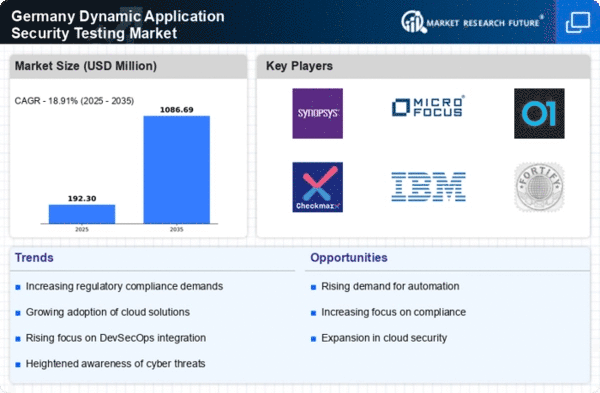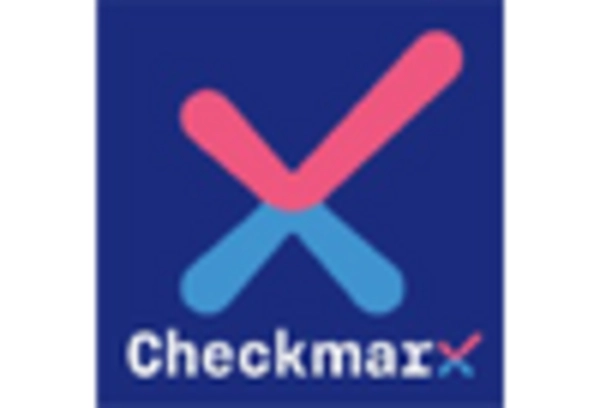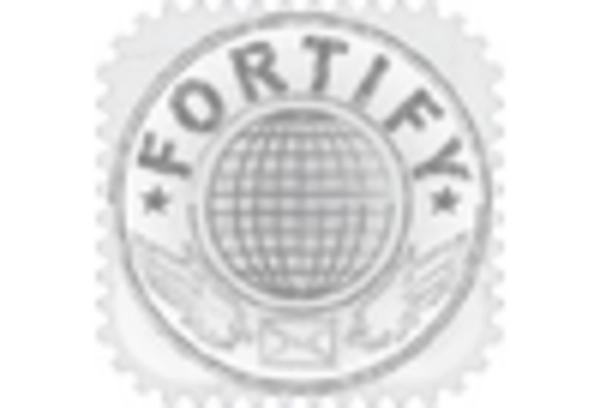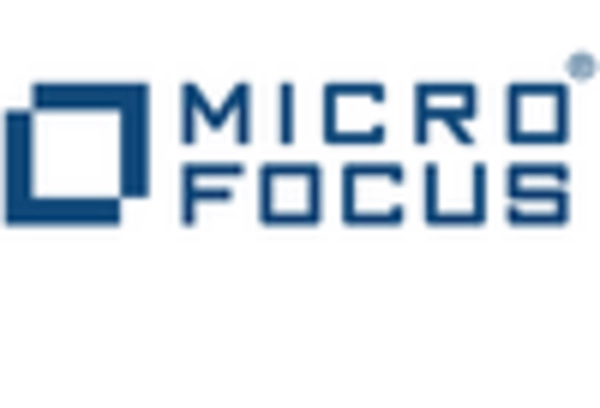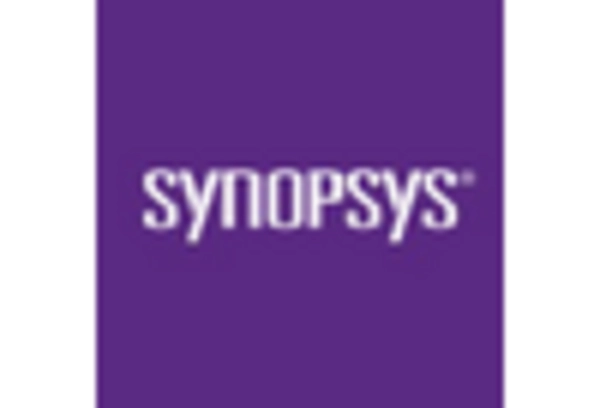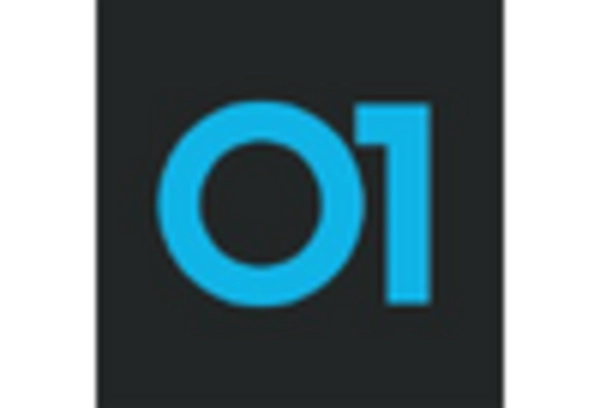Growing Cloud Adoption
The shift towards cloud computing in Germany is a significant driver for the dynamic application-security-testing market. As organizations migrate their applications to the cloud, they face new security challenges that necessitate the implementation of dynamic testing solutions. According to recent data, over 70% of German companies are expected to adopt cloud services by 2025, creating a pressing need for effective security measures. This transition highlights the importance of dynamic application security testing in identifying vulnerabilities in cloud-based applications. As businesses seek to leverage the benefits of cloud technology while ensuring security, the demand for dynamic testing tools is anticipated to rise, further propelling market growth.
Increased Focus on DevSecOps
The integration of security into the software development lifecycle is becoming increasingly prevalent in Germany, influencing the dynamic application-security-testing market. The DevSecOps approach emphasizes the importance of incorporating security practices from the outset of development, rather than as an afterthought. This shift is driven by the need for faster deployment cycles and the growing recognition that security vulnerabilities can lead to significant financial losses. As organizations adopt DevSecOps methodologies, the demand for dynamic application security testing tools is likely to increase, as these tools facilitate continuous testing and integration. This trend suggests a transformative change in how security is perceived and implemented within the software development process.
Rising Cybersecurity Threats
The dynamic application-security-testing market is experiencing growth due to the increasing frequency and sophistication of cyber threats in Germany. Organizations are compelled to adopt robust security measures to protect sensitive data and maintain customer trust. In 2025, it is estimated that cybercrime could cost the global economy over $10 trillion annually, prompting German companies to invest heavily in security solutions. This trend indicates a heightened awareness of vulnerabilities in applications, leading to a surge in demand for dynamic application security testing tools. As businesses strive to comply with stringent data protection regulations, the need for effective testing solutions becomes paramount, driving the market forward.
Regulatory Compliance Pressures
In Germany, the dynamic application-security-testing market is significantly influenced by the stringent regulatory landscape. The General Data Protection Regulation (GDPR) and other local laws necessitate that organizations implement comprehensive security measures to safeguard personal data. Non-compliance can result in hefty fines, reaching up to €20 million or 4% of annual global turnover, whichever is higher. This regulatory pressure compels businesses to adopt dynamic application security testing as a proactive measure to ensure compliance and mitigate risks. Consequently, the market is likely to see an increase in demand for solutions that facilitate adherence to these regulations, thereby enhancing the overall security posture of organizations.
Rising Demand for Agile Development Practices
The dynamic application-security-testing market is being propelled by the increasing adoption of agile development methodologies in Germany. This trend emphasizes the need for security in rapid development cycles. Agile practices prioritize flexibility and rapid iteration, which can inadvertently lead to security oversights if not managed properly. As organizations strive to deliver software quickly, the need for dynamic application security testing becomes critical to identify and remediate vulnerabilities in real-time. Research indicates that agile teams that incorporate security testing into their workflows can reduce vulnerabilities by up to 50%. This growing recognition of the importance of security in agile environments is likely to drive demand for dynamic testing solutions, ensuring that security is an integral part of the development process.


